Luath Press
Glasgow Dragon
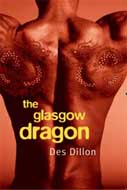 Tell me about Glasgow Dragon.
Tell me about Glasgow Dragon.
This is the premise of it. A Glasgow gangster goes to Alcoholics Anonymous, and the longer he’s at Alcoholics Anonymous the more conscience he gains, and the more conscience he gains the less able he is to be a gangster. But it’s also sort of a mystical stroke fairy tale type book, if you can imagine a gangster fairy tale.
Is that a departure from your other writing?
It’s a departure in the sense that most of my writing’s based on people I know or things that happened to me or to people I know, and then I fictionalise them by finding depth in them and expanding that depth. Glasgow Dragon is total fiction.
I gather you’re reading a lot of Raymond Carver books.
Aye. Raymond Carver’s the kid, inne?
You’re really into the idea of writing pared back short stories. Tell me a bit about why that’s got you so interested.
Because I’ve been writing so much for television and stuff that I really don’t want to be doing – I’m only doing it for the money – I’ve been taking notes for poems and short stories that I’ve been wanting to write now for about four years. I suppose I have had a mid-life epiphany, you know, where I said to myself, right, fuck it. And I wrote one story and it kept going and kept going and over a period of two or three months I wrote 15 brand new short stories that are all between the two and three thousand word mark, some maybe hitting four. I write the story, take it out into the garden, edit it. And editing’s not just taking stuff out, 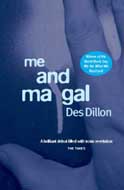 it’s putting stuff in and all that; the wee glimpse here and there and a bit of character revelation and all that. I felt, after I wrote the first short story, feelings about writing that I hadn’t felt for ten years, since I wrote Me and Ma Gal, maybe, and a couple other books I’ve written, as if I’d been reborn as a writer, know? A born-again writer.
it’s putting stuff in and all that; the wee glimpse here and there and a bit of character revelation and all that. I felt, after I wrote the first short story, feelings about writing that I hadn’t felt for ten years, since I wrote Me and Ma Gal, maybe, and a couple other books I’ve written, as if I’d been reborn as a writer, know? A born-again writer.
Was Me and Ma Gal the first thing you ever wrote?
I’d written a few poems and had some published. The first book I wrote just coming out of uni. I was armed in a dangerous way with an education in English literature, and it was absolutely shite, the book, you know, ‘Look how clever I am.’ And I sat down at that time to write Me and Ma Gal thinking, ‘Nobody wanted that book, my work of genius, so I’ll write a wee nice book and I’ll publish that and then once that’s published I’ll hand them my work of genius, this first novel I wrote’. Obviously it’s never been published cos it’s shite. Me and Ma Gal was gonna just be a short story when I started, but then by the time I’d even got them out the house and across the railway and over the burn, that was it, 60 pages long, and I decided it must be a wee novel now, and I ended up with a novel. It was great to sit and write it cos I was only writing a wee story. I don’t think in these terms now about literature, but at the time I didn’t think it was literature in the sense that we tend to use ‘literature’. I thought the other book was. And it turns out what I’d done with Me and Ma Gal is what I should do all the time and sometimes I don’t: just tell a story. And that’s why it was such a nice and succinct wee book.
 It was just like reading bits of my own childhood. It did have a short story quality, in that it was episodic. What happened when you had it finished?
It was just like reading bits of my own childhood. It did have a short story quality, in that it was episodic. What happened when you had it finished?
When I had it finished I went back through it again, and because of the short story qualities of it, I kind of planted stuff in it, like taking Strangler Joe back to nearer the beginning and all that, made it feel more like a novel with just pulling a few wee tricks. But I didn’t do much more to it. I think I rewrote that book about three times and that was it.
Had you ever been to a publisher? What did you do?
They rejected it a few times, then Argyll Publishing said they would publish it. But I had only sent it out to three or four people because I’d sent the other novel out to about 60 people and had it rejected by them all, so my bottle had crashed. I thought, I’ve got another pile o’ shite here. If Argyll hadn’t published it, I don’t know if I’d’ve kept sending it out. But having said that, I think I started the book in 1987 or 88, finished my last draft probably in 90, 91, and it wasn’t published till 1995, although Argyll said they would publish it roundabout 1993.
Is that when your first book was published, 1995?
1995, aye. I know it’s just recently, seems as if I’ve been writing for a hundred years, which I have been doing, but I’ve only been published ten. That’s not a long time for a writer, especially cos I’ve written ten books – not all of them masterpieces, but ten anyway.
You’re quite a humourous writer.
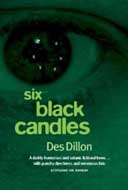 I cannae help but be humourous. One of the things I’ve got to stop myself doing is, if it’s a choice between poignancy and humour I’ll always opt for the humour. But sometimes, and I can do it rather well, I get both in at the same time, humour and poignancy. It’s just the culture I come fae. Takes me back to the short story question. I’m not saying I should stick to short stories, but of all the forms that I’m writing that should be the one that I’m best at cos it’s all I ever do when I meet people, tell them stories, and I’ve been doing it all my life. If I’m remembered when I die and all that, I should be remembered more for short stories than for anything else, although I’m quite good at drama and all, it turns out, just by accident.
I cannae help but be humourous. One of the things I’ve got to stop myself doing is, if it’s a choice between poignancy and humour I’ll always opt for the humour. But sometimes, and I can do it rather well, I get both in at the same time, humour and poignancy. It’s just the culture I come fae. Takes me back to the short story question. I’m not saying I should stick to short stories, but of all the forms that I’m writing that should be the one that I’m best at cos it’s all I ever do when I meet people, tell them stories, and I’ve been doing it all my life. If I’m remembered when I die and all that, I should be remembered more for short stories than for anything else, although I’m quite good at drama and all, it turns out, just by accident.
Publishers say short stories don’t sell.
I think they sell in America. I tend to read more short stories. The thing is they don’t publish short stories for people, so therefore people aren’t gonna read them. If nobody’s publishing, nobody’s buying them.
Trainspotting is a book that is essentially a collection of short stories.
Being a writer, I could see what he’d done in Trainspotting cos I’d done the same thing with Me and Ma Gal; all these episodes. The only thing with mine is they all happened in the same day, on the same journey, so it was easier to turn it into a novel. I don’t think Trainspotting was ever really meant to be a novel, but Me and Ma Gal was. But the similarity between Trainspotting and Me and Ma Gal is I sat down to just write a short story about this strangler guy who tried to kill me and my pal but by the time, as I said, I got out the gate and over the railway and over the burn… and I wisnae even over-writing it. You can avoid overwriting if you’ve got one of these cheeky wee characters because everything they say seems to be pertinent in some way, whereas when you’ve got an adult – you expect an adult to edit themselves before they speak, so when you’re reading a book with an adult, they maybe don’t get away with as many sidetracks as maybe a kid will. Take Catcher in the Rye for instance – it’s brilliant. It’s the book that gave me the voice for Me and Ma Gal. I’d written it and couldn’t hit that naive voice right. I read Catcher in the Rye and I thought to myself, ‘That’s a dickhead that’s gonna narrate this, an ironic revelation is gonna come out by somebody thinking they know everything but they know nothing.’ Then I made the guy younger and a bit more likeable than Holden Caulfield.
You prefer doing not telling.
I like to show and don’t tell; it’s a big no-no. I like people to figure out how somebody feels. What’s the point in saying, ‘She was feeling unhappy’? It’s much better if she comes in and kicks the fridge. ‘Jeanie came in and kicked the fridge. All the buckfast was finished.’ Sommat like that.
You said you don’t like when people attack a book because of its ethics or its attitude. Give me an example.
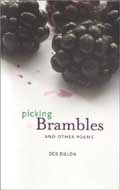 I watch Newsnight Review, 11.00 Friday night, I shout and bawl at the television cos nine times out of ten the criticisms of the work are ethical, moral criticisms, or even worse, the criticisms of the artist or the writer are moral criticisms of them as a person. They don’t look at the work as a work of art outside their own moral realm. These are supposed to be intelligent people – they can’t even make that paradigm shift. Take Welsh’s drug-ridden world, which I found really hilarious, but people from other cultures didn’t. I was falling off the couch laughing, reading Trainspotting. The difference is I can move into their world because I’ve been educated in it and the world runs on that culture. But when you get down into the vernacular cultures, it’s very difficult for people from the upper strata culture, on a worldwide basis, to pick up the nuances and subtleties of them. Therefore they dismiss the language by honing in on the bad language, the swearing or whatever, or they dismiss it as being shallow, one puddle deep when it’s actually fathoms deep. The only reason they don’t think it’s fathoms deep is they can’t hook into it – and how can they? It’s a whole world they don’t know anything about. So they say, ‘Oh it’s this and it’s that,’ and from my point of view, or Irvine Welsh’s point of view, we’re laughing at them because not only have they got it totally wrong, they’re exposing themselves for the horses that they are. They don’t know the world. They shouldn’t be criticising the book – somebody from that background should be doing a review of the book.
I watch Newsnight Review, 11.00 Friday night, I shout and bawl at the television cos nine times out of ten the criticisms of the work are ethical, moral criticisms, or even worse, the criticisms of the artist or the writer are moral criticisms of them as a person. They don’t look at the work as a work of art outside their own moral realm. These are supposed to be intelligent people – they can’t even make that paradigm shift. Take Welsh’s drug-ridden world, which I found really hilarious, but people from other cultures didn’t. I was falling off the couch laughing, reading Trainspotting. The difference is I can move into their world because I’ve been educated in it and the world runs on that culture. But when you get down into the vernacular cultures, it’s very difficult for people from the upper strata culture, on a worldwide basis, to pick up the nuances and subtleties of them. Therefore they dismiss the language by honing in on the bad language, the swearing or whatever, or they dismiss it as being shallow, one puddle deep when it’s actually fathoms deep. The only reason they don’t think it’s fathoms deep is they can’t hook into it – and how can they? It’s a whole world they don’t know anything about. So they say, ‘Oh it’s this and it’s that,’ and from my point of view, or Irvine Welsh’s point of view, we’re laughing at them because not only have they got it totally wrong, they’re exposing themselves for the horses that they are. They don’t know the world. They shouldn’t be criticising the book – somebody from that background should be doing a review of the book.
Something that really gets me going is when people use the word ‘accessible’.
‘Accessible’ is derogatory.
It’s a notion of, ‘We know what’s good for them, let’s bring them into the body of the kirk.’
There’s a belief now that if something’s difficult, if you have to put effort into it, it’s a work of art. The last thing I’m going to do is make my books or my plays inaccessible because I want people to understand them. I want them to understand fully on a mental and spiritual level. I don’t want them to have to struggle to do it. I want to provoke them. For instance, if somebody comes into the theatre, provoking people into thought could be something as simple as this: ‘Where is Tracy Gracy’s head? It’s in the fridge’. And the audience starts to think, ‘What? There’s a head in the fridge?’ That’s a simple example of provoking people into thought.
Here’s an example of ethics, right. Somebody sees the ned culture on the corner, and they slag the neds, ‘They’re dangerous and they’re causing a breach of the peace just by being there,’ cos they’re frightened of people. But if you’ve come from that culture, there’s some positive attributes other people don’t even see. There’s a massive loyalty bond, it’s got the feeling of being in a family, it gives you a purpose in life and all that. It’s all there, it’s almost like a wee regiment, it’s all the positive attributes but they’re covered up by other societies cos they only see the negative attributes of a bunch of neds in the street. It’s territorial; safety of belonging to that group. If anybody comes into your area you’re safe because they’re there for you. It’s a band of brothers, but you read a book and they’re missing all that. And I’m not gonna tell you – why should I tell you? – cos that’ll make me tell don’t show. But when I do try to do the show don’t tell, the neds from around the corner are gonna understand it, but if I said, ‘One of the shaws come up the street, and we hunted him,’ somebody else might think, ‘Why were they hunting him? They hunted him cos they’re just violent people.’ No, we’re hunting him because of a fierce loyalty to each other and our area. There’s a big difference in that, and that’s just a wee insight into how, when you start flinging your hooks in, you can get subtlety and nuances, but you won’t get them unless you know the world. And that’s what I’m talking about ethics.
There’s a lot of these false moral judgements that are imposed by one group on another. But it works both ways; working class people can do it just the same.
We do. Like my approach to Emma when I first seen it. I wasnae going to ever like Emma, first of all a book about a bird sitting in a chair for 300 pages isn’t gonna interest me cos nothing happens. She comes from a culture I don’t like. That’s not my approach to it now, but I brought all my prejudice to university and that’s why I found nearly all the books boring. Apart from House with the Green Shutters, when I could see my own people hovering about, not just Scottish people but bad people and village life and just people doing… it was fearless, that book, actually, when you think about when it was written. It was fearless in its depiction of Ayrshire cos it hasn’t changed much, Ayrshire.
Is Coatbridge in Ayrshire?
No, but it should be. Coatbridge is a very Irish Catholic culture, but it’s still got all the venom and all that, that’s what I identified with, not the religion obviously, but the venom and the nastiness and people’s attitudes to each other. If you take that Kafka story, with the guy that wakes up – no it’s not Kafka is it – and he’s a rhinoceros. It’s one of these European playwrights or something. He wakes up and he’s a rhinoceros and he hides, but more and more people become rhinoceroses, or rhinoceri, whatever the word is, and then there’s only one 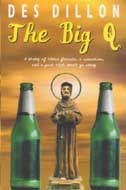 person left as a human and he’s an outcast. There’s always gonna be outcasts and basically the ethical net that covers the world – or ethical film – is always going to be from the power of the ruling classes, whoever they might be, and if there’s a set of rules that you’ve gotta work by in business and all then that’s the set of rules that you’ll stand on and look down upon all the other sets of rules from. What about all these boxers in this middle class world now? It’s fascinating they’ve taken the lower class thing. Billy Elliott is about a boxer that becomes a ballet dancer. In order to become a better human being he adopts middle class values, but what British film have you ever seen where a ballet dancer becomes a boxer to become a better person, or someone comes from higher culture to lower culture. You don’t see it. But in American culture you see it all the time, and that’s why their movies are successful. They know who they’re writing their movies for, and their stories. They’re writing them for the masses who watch them. That’s why you get films like Trading Places but you don’t really get that in Britain at all. I call it Billy Liar, Billy Elliott. Leave your town, your background, your culture, your father, your friends; go into London, dress like a big chick and squawk up and down the stage while your brother and your father walk along doffing their caps saying sorry, sorry, sorry, to everybody. What does that tell you? And yet I liked the film, cos it’s a good film. But the message below it relied on the whole country’s belief, the middle class’s and working class’s belief, that those morals, those ethics are the correct ones. That’s how an ideology works. Everybody’s got to believe it. My mother believes it. My mother’s paid into that background, my father maybe not so much. Me, I’m not paying into it at all. I’ve got my own personal morality that I work on. If I can look at a situation and genuinely believe that what I’m doing is for the good of the situation and the people in it, that’s my morality.
person left as a human and he’s an outcast. There’s always gonna be outcasts and basically the ethical net that covers the world – or ethical film – is always going to be from the power of the ruling classes, whoever they might be, and if there’s a set of rules that you’ve gotta work by in business and all then that’s the set of rules that you’ll stand on and look down upon all the other sets of rules from. What about all these boxers in this middle class world now? It’s fascinating they’ve taken the lower class thing. Billy Elliott is about a boxer that becomes a ballet dancer. In order to become a better human being he adopts middle class values, but what British film have you ever seen where a ballet dancer becomes a boxer to become a better person, or someone comes from higher culture to lower culture. You don’t see it. But in American culture you see it all the time, and that’s why their movies are successful. They know who they’re writing their movies for, and their stories. They’re writing them for the masses who watch them. That’s why you get films like Trading Places but you don’t really get that in Britain at all. I call it Billy Liar, Billy Elliott. Leave your town, your background, your culture, your father, your friends; go into London, dress like a big chick and squawk up and down the stage while your brother and your father walk along doffing their caps saying sorry, sorry, sorry, to everybody. What does that tell you? And yet I liked the film, cos it’s a good film. But the message below it relied on the whole country’s belief, the middle class’s and working class’s belief, that those morals, those ethics are the correct ones. That’s how an ideology works. Everybody’s got to believe it. My mother believes it. My mother’s paid into that background, my father maybe not so much. Me, I’m not paying into it at all. I’ve got my own personal morality that I work on. If I can look at a situation and genuinely believe that what I’m doing is for the good of the situation and the people in it, that’s my morality.
Can you tell me something of the real journey that brought you to that view?
What happened to me was what happens to a lot of people who grow up – I was quite good at school but I started to run about with all the neds, sniffing glue, drinking, taking drugs. Then at one time in my life I stopped sniffing glue, I stopped drinking and taking drugs, and started to search about for some kind of moral framework. Went back to chapel, didn’t work, but eventually I suppose I grew up. I’ve never drunk for fourteen years, or took drugs. I’ll tell you a story about the highlights, right. I was about two years after drink, and I went to a monastery near Haddington. I met a young guy who was going to be a monk, and I was saying, ‘What the fuck d’you want to be a monk for, are you mad?’ and all, I was just kidding him on, it was alright, the guy was a pal, and he was saying, ‘God told me.’ I says, ‘How? Did he say, WE WANT YOU TO BE A MONK?’ ‘No,’ he says, ‘but every time I think about it an immense feeling of joy floods my body.’ And I says to him, ‘What’s joy?’ I was a 30 year old man and I’d never experienced the sensation of joy. That was the turning point in me spiritually. I had to say to myself, what’s going on here? I mean I knew of the existence of joy, it wasn’t like I didn’t know what it was, but I didn’t know what it felt like. I had felt it on drugs, but I’d never felt it straight. To be a 30 year old man and never’ve experienced joy is quite a sad state of affairs.
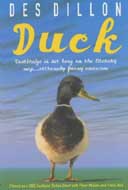 What is joy then?
What is joy then?
Joy for me is when you walk out of your house one morning and the sun is out and the sky is blue and you take a big breath and you just think, ‘Isn’t it great?’ Or it’s just a big bowl of pasta and you’re sitting on the couch watching a great film and you’re just happy to be alive and basically your greed and your lust and your ambition has floated away for a wee while. It’s like you’re happy – it’s gratitude. Gratitude’s a good road to joy. Gratitude for what you’ve got.
Some of the ideas you read when you’re a kid and you get religion seemed really alien to me; you know, notions of humility. Well I actually have thought quite a lot about this idea of humility and I am convinced that humility is a very powerful concept because it’s not meaning that you negate yourself so much as it is connected to that vision of what you’re saying, that kind of centred feeling, when you just feel the harmony of things and you’re part of it. Maybe you can write, and maybe you can choose your subjects or your form -
But it could disappear tomorrow.
Gerard Manley Hopkins felt that happened to him. He could write – and then he couldn’t.
He’s one of my favourite writers. ‘I caught this morning morning’s minion, kingdom of daylight’s dauphin, dapple-dawn-drawn Falcon’. There’s energy in it. People say, ‘Who the fuck’s he, comparing himself to Gerard Manley Hopkins?’ But that’s the exact same thing I try and do in my writing, all of that energy packed into sentences, spring-loaded sentences, not so much prose so poetic as that, but I definitely try and get that energy into it. You sense his joy in writing and stringing those words together. A lotta people would say to me, ‘Well it hadn’t the humility,’ because people mistake my big personality for a lack of humility. But I’ve just got one of they big personalities where I just take over when I get in, on a stage or something. But the rest of my time’s spent pretty much in solitude. One of my big contemplations is the meaning of life. If you had, and I don’t expect anybody has, read all my books, you could see it in them. You read through them, it’s there, and if I hadn’t of been a writer I’d probably of been a priest. I’m not meaning a Catholic priest, I just mean I’ve got a real lust for the spiritual feeling, the sensation of what’s it all about, and sometimes you get it for a fleeting moment.
Those fleeting moments can inspire you through the bits where you’re not really feeling it.
You can confirm it. You can look back and say, ‘That really happened, I really felt like that that day.’ I look back and I had a bit of a nervous breakdown when I stopped drinking, but at the time I thought it was a spiritual experience, like God had come into my life and all that, right, and that’s what I tellt everybody – not too many people cos you’d just get ridiculed for that – so I kept it kinda quiet. After about six months I’d been away, it was the greatest feeling I’ve ever had in my life, for six months I was on a pink cloud, I just couldn’t go off it.
Why would you say that’s a nervous breakdown?
It didn’t feel like a nervous breakdown at the time, but I rationalised it later in life, saying it was a nervous breakdown. But maybe it wasn’t, maybe it was God, that’s what I’m saying. This is why I look back and say it wasn’t just a nervous 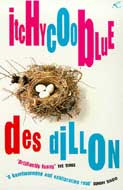 breakdown. Cos I look at my life now and my life is a million times different and better, and I’m a million times different and better a person than I was then, but the rational part of me as a human being comes in when I’m depressed and says, ‘No Des, that was just a nervous breakdown.’
breakdown. Cos I look at my life now and my life is a million times different and better, and I’m a million times different and better a person than I was then, but the rational part of me as a human being comes in when I’m depressed and says, ‘No Des, that was just a nervous breakdown.’
Is fiction a way of telling the truth?
It is a way of telling a truth. In my best stories, I take a story I’ve been telling over the years, I start writing it, and as I write it, it starts sucking in all this other stuff automatically, and as I’m working on it and redrafting it I start to find the truth of the story. It might not be the reason I was telling it in the first place. I just realise a feeling and I see a theme in all it. I write the story according to that, and I rewrite the truth in. Like one I wrote about my brother up a close – when you read the story you see the story’s not about that anymore. It’s called ‘Echo’ and it’s all about how your past always comes back to haunt you. In a certain way that was in the close cos you grow up and your brother’s an alkie and you’re an alkie. The way the story went, when I got the fucking end in it I just rejoiced, man it was like some feeling, when I got the story wrote it was great. It was electric man. It was three puddles deep, now it’s sixteen fathoms deep.
When you write, do you see it as a film or do you just hear it as words, or does it not come in either way?
I see it as pictures but they’re not as vivid as I used to claim to myself. What I’m more realising is I’m a very kinetic person, touchy-feely. When I write I take up body positions, and I can describe how things feel.
How do you mean you take up body positions?
If I think, ‘David was standing’, well what was he standing like? I stand up.
You actually do it?
Aye. If he was standing up leaning forward with his arm trooked out in front, kinda hooked between his thumb and pointing, his fingers swinging, I do it, aye, so you feel the emotion that goes with it and all.

In your writing, what’s coming over is this thing about fathoms and depth. You have to catch the lot but without getting heavy-handed, without being moralising, not hammering anything down. Doing it without it being some sort of intellectually cerebral thing.
Intellectualism – I’m not against it, sometimes I enjoy an intellectual book – but me writing in that style would be so fucking boring and restrictive. I couldn’t say then what I just said the now, for a start, and I think that’s quite a powerful way to speak at times if you need it. I like everybody to understand what I’m talking about and I believe everybody’s capable of understanding any amount of subtlety and profundity. Take poetry for instance. The simpler the poem the more profound it is sometimes. That’s the way. The more words there are and you’re like, ‘What the fuck’s this all about?’ Profundity’s nothing to do with amounts of words or length of words, it’s to do with exactitude of idea, and exactitude of concept.
But what about ambiguity?
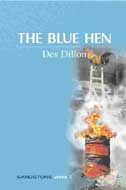 The feeling of uneasiness that ambiguity produces could be your goal, to make that person feel exactly, ugh, disgruntled, and the way you feel when you’re trying to learn to play scales on the piano and you’re not quite there, and then suddenly you break through, that’s what ambiguity is all about, used deliberately. But used like grenades, give it to the wrong people… if there’s ambiguity in a story, I say to myself, do I want that to be there? If the answer’s ‘aye’ it stays.
The feeling of uneasiness that ambiguity produces could be your goal, to make that person feel exactly, ugh, disgruntled, and the way you feel when you’re trying to learn to play scales on the piano and you’re not quite there, and then suddenly you break through, that’s what ambiguity is all about, used deliberately. But used like grenades, give it to the wrong people… if there’s ambiguity in a story, I say to myself, do I want that to be there? If the answer’s ‘aye’ it stays.
The sort of ambiguity that you could be talking about is the ambiguity that allows for a dynamic quality whereby anything that’s ever referred to in whatever way, either through the action or indirectly, is moving to something else and that’s what it is, that’s the yin-yang thing of real living. Nothing is ever there for two seconds – you know you have a great moment, of any sort, and the minute you’ve had your sex it’s not anymore, and you think I could die now; you can’t keep anything for two seconds.
It’s like the notion of a cherry blossom falling down. I’ve got this theory that the closer to the ground it gets the more beautiful it is, because it’s gonna die, it’s gonna die any minute, and I always think there must be an infinite beauty cos if it’s a millimetre off the ground you can expand that by a magnifying glass and slow it down, and you can always theoretically keep getting closer and closer to the ground. Maybe find the point where the cherry blossom’s absolutely beautiful.
Various books by Des Dillon are available from Luath Press www.luath.co.uk; The Blue Hen is published by Sandstone Press; The Big Q by Headline; and Itchycooblue and Duck by Review.
© Jennie Renton 2005

Comments